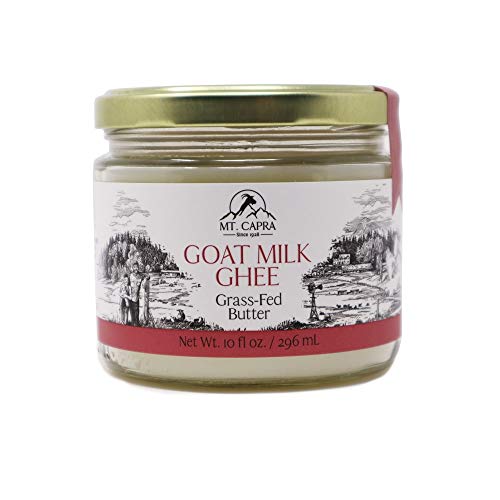How to Choose the Ghee
Everything You Need To Know About Ghee

- 1. Everything You Need To Know About Ghee
- 1.1. What Is Ghee?
- 1.2. How Is It Made?
- 1.3. Health Benefits Of Ghee
- 1.3.1. Highly Resistant to Heat
- 1.3.2. Rich in Bioavailable Vitamins
- 1.3.3. A Nutritional Powerhouse in Ghee
- 1.4. Ghee Vs. Butter: Which Is Better?
- 1.5. What Should You Look For When Buying Ghee
- 1.5.1. Ingredient Quality
- 1.5.2. Production Techniques
- 1.5.3. Aroma and Taste
- 1.5.4. Packaging and Storage
- 1.5.5. Certification
- 1.6. Use Ghee For Cooking And Food Preparation
Ghee, or clarified butter, is gaining increasing popularity as a super-healthy fat option. Although some may perceive ghee as a recent trend, it boasts a rich and longstanding heritage in both Southeast Asian cuisine and traditional medicine. If you're curious about the buzz surrounding ghee, this article is here to provide you with all the information you need. Join us as we delve into the world of this delectable clarified butter!
What Is Ghee?
Let's begin with the fundamentals. Traditional butter is composed of milk fat, milk solids, and water, whereas ghee is purely milk fat (also known as clarified butter). The process of making ghee involves simmering butter over low heat for an extended period, effectively removing the water and milk solids. What remains is a luscious golden liquid fat with a delectably caramelized flavor and an enchanting aroma.
Ghee has its origins in India and is commonly utilized in Middle Eastern and Southeast Asian cuisines. It serves as a versatile substitute for both butter and vegetable oils and can enhance the taste of both sweet and savory dishes. Moreover, it possesses therapeutic properties when combined with herbal remedies as a part of Ayurveda, a time-honored form of alternative medicine. In addition to its long-standing spiritual and medicinal associations, ghee has gained recent popularity as a healthier option compared to butter and other cooking oils.
How Is It Made?
Centuries ago, in India, the creation of what we now call "liquid heaven" likely emerged out of necessity. It's common knowledge that butter tends to spoil quickly in high temperatures, while ghee offers a longer shelf life due to its remarkable stability.
To craft ghee, a substantial quantity of butter is meticulously melted and simmered over very low heat, and I mean super slow cooking here. Over time, the milk solids within the butter settle at the bottom and start to develop a rich, golden-brown hue. Simultaneously, the water content evaporates, leaving behind only pure butterfat. The milk solids are carefully removed, leaving us with the golden elixir known as ghee.
You might wonder, "Isn't ghee just another term for clarified butter?" Well, in essence, ghee can be considered a variety of clarified butter. The process for making them is quite similar, but ghee is subjected to a longer cooking time compared to traditional clarified butter. This extended cooking imparts a deeper, nuttier flavor to ghee, setting it apart from standard clarified butter. Moreover, ghee can be stored in the refrigerator for about a year and remains good for three months at room temperature. It's truly a testament to the convenience of modern times, isn't it?
Health Benefits Of Ghee
Ghee - A Dairy Delight Free of Casein and Lactose
Ghee, a natural derivative of butter, is known for being free of both casein and lactose. This quality makes it particularly advantageous for individuals dealing with dairy sensitivities or allergies, particularly those who are lactose intolerant. Ghee can be seamlessly incorporated into a variety of dietary plans, including keto, paleo, gluten-free, Ayurvedic, and Whole 30 diets.
Highly Resistant to Heat
Cooking with fats and oils that surpass their smoke point can lead to the breakdown of these substances, releasing harmful free radicals into the food. Consuming such free radicals can negatively impact one's health. Ghee is lauded for its high smoke point of approximately 250°C, rendering it a healthier choice for high-heat culinary endeavors due to its exceptional stability.
Rich in Bioavailable Vitamins
Dairy products derived from cows, sheep, and goats that graze on grass are renowned for their abundance of fat-soluble vitamins. Utilizing clarified butter like ghee in cooking has been shown to enhance the body's absorption of crucial vitamins, minerals, and macronutrients. This not only adds a delightful touch to your dishes but also supports your overall health. However, it's important to remember that moderation is key when consuming foods rich in fat.
A Nutritional Powerhouse in Ghee
Ghee is a nutritional powerhouse, offering an array of health benefits. It is notably rich in vitamin A, which is essential for bolstering the immune system, supporting liver health, regulating hormones, enhancing stamina, and promoting eye health. Ghee also contains anti-inflammatory fatty acids, including conjugated linoleic acid (CLA) and butyric acid. It boasts slightly higher levels of CLA compared to regular butter, which is beneficial for those seeking obesity control. Additionally, it contains more butyric acid than butter, potentially contributing to its anti-cancer and anti-inflammatory properties.
Ghee Vs. Butter: Which Is Better?
Is ghee a healthier option compared to butter? Nutritionally, they are quite similar, but ghee lacks milk proteins, giving it an edge, especially for individuals dealing with dairy-related sensitivities and allergies.
Does ghee possess a buttery taste? Ghee boasts a more indulgent, nuttier flavor than your typical butter. With its milk solids removed, ghee also offers a thicker consistency. Additionally, it has an impressive high smoke point of around 250°C, while butter's smoke point is only around 150°C, making ghee the superior choice for high-heat cooking.
There's a slight discrepancy in calorie content. A tablespoon of ghee contains roughly 120 calories, while butter contains about 100 calories. In terms of saturated fat, ghee contains approximately 13 grams per serving, while butter has around 11 grams. Both lack protein, sugars, or carbohydrates. Regardless of your choice, opting for grass-fed varieties is advisable as they offer richer flavor, enhanced nutrients, and contribute positively to overall well-being.
What Should You Look For When Buying Ghee
Ingredient Quality
When it comes to purchasing ghee, the foremost and most crucial factor to consider is the quality of its ingredients. Authentic ghee is crafted from top-tier butter, preferably sourced from grass-fed cows. Grass-fed cows produce milk with enhanced nutritional value, which is then transformed into superior-quality butter. To ensure that you're acquiring the finest ghee, opt for products that explicitly state the use of grass-fed butter on their packaging.
Production Techniques
Ghee essentially entails the clarification of butter, which involves heating it to separate the milk solids and water from the pure fat. Traditional methods require a slow simmering of the butter, allowing the solids to segregate and settle at the bottom. Once the milk solids are eliminated, the remaining clear, golden liquid is genuine ghee. While shopping for ghee, it's recommended to seek out products that highlight traditional or slow-cooking methods, as they often result in a more flavorful and aromatic product.
Aroma and Taste
A remarkable attribute of ghee is its distinctively nutty aroma and flavor. High-quality ghee should emanate a rich, caramel-like fragrance and possess a savory, buttery taste with a subtle nutty undertone. When you uncap the container, take a moment to relish the aroma – it should be enticing and mouthwatering. Substandard ghee may have an unpleasant or insipid odor, so always rely on your senses when making a purchase.
Packaging and Storage
The packaging of ghee can also influence its quality. Ghee should be stored in hermetically sealed containers to prevent oxidation and maintain its freshness. Opt for dark or opaque containers, as they shield the ghee from exposure to light, which can lead to its deterioration over time. Always inspect the packaging for any signs of tampering or damage, and confirm that the container is securely sealed.
Certification
To ensure the authenticity and quality of the ghee you're procuring, search for certifications or seals from reputable organizations. For instance, in the United States, USDA Organic certification guarantees that the product is crafted from organic ingredients and adheres to specific quality standards. In India, you can look for the FSSAI (Food Safety and Standards Authority of India) mark. These certifications serve as a testament to the product's compliance with stringent quality and safety standards.
Use Ghee For Cooking And Food Preparation
For centuries, ghee has been an integral component of Indian cuisine, gaining global recognition in the modern era. This clarified butter is exceptionally suited for frying, roasting, and sautéing. Here are some delightful ways to incorporate ghee into both sweet and savory dishes, allowing your culinary creativity to flourish:
- Elevate your movie night by drizzling melted ghee over your popcorn.
- Let it solidify at room temperature and spread it over crackers or toast for a delectable treat.
- Craft delicious, nutty-flavored pancakes using this exquisite clarified butter.
- Enhance your scrambled eggs by adding ghee to the cooking pan, preventing any sticking.
- Enrich the flavor and texture of mashed potatoes and baked potatoes by incorporating ghee.
- Achieve a caramelized taste by drizzling clarified butter over vegetables before roasting.
- In addition to using ghee for cooking vegetables, meat, and eggs, consider adding it to your coffee. The trend of buttery coffee is too intriguing to miss out on!
With its extensive historical background, distinct flavor, and a multitude of health advantages, ghee has unquestionably secured its position in the realm of cuisine. Originating in ancient India and now enjoying widespread utilization, ghee consistently enchants palates and provides nourishment. Whether you are a culinary connoisseur or someone mindful of their health, integrating ghee into your diet can be a delectable and healthful decision. Embrace this golden elixir and savor the opulence it imparts to your culinary journeys.










